Dagestan People's Poet Rasul Gamzatov in his work "My Dagestan" wrote that a small nation needs a big dagger and a small nation needs big friends. 50 years ago, on January 27, 1973, the Paris Agreement "on ending the war and restoring peace in Vietnam" was signed. This was a victory from the combined strength of the nation, including the great help of international friends.

US Secretary of State Henry Kissinger shakes hands with Mr. Le Duc Tho - "Special Advisor" of the Delegation of the Government of the Democratic Republic of Vietnam after signing the Paris Agreement.
The long and tense diplomatic battle
Few negotiations have lasted as long and as many sessions as the Paris Conference on Vietnam. The negotiations lasted from May 13, 1968 to January 27, 1973. The negotiations lasted 4 years and 8 months with 202 official sessions and 52 closed, secret sessions. On May 13, 1968, the Paris Conference between the two sides opened.
Right from the beginning of the negotiations, the leaders of the Saigon regime fiercely opposed. Later, in order to quickly withdraw from the quagmire of the Vietnam War, the United States used tough measures to force the Saigon regime to accept and sign the terms of the agreement.
On January 16, 1973, General Alexander Haig, President Nixon's National Security Council Advisor, handed Nguyen Van Thieu a letter from Nixon, which Kissinger called "fiery", which included the following passage: "Therefore, we have decided to definitely initial the Agreement on January 23, 1973 in Paris.
If necessary, we will do so alone. In that case, I must explain publicly that your Government is obstructing peace. The result is the inevitable and immediate cessation of US economic and military aid - and a reorganization of your government will not change the situation (1)”. Under pressure from the US, the Republic of Vietnam finally agreed to sign the agreement.
Basic contents of the Agreement
The basic content of the Agreement is that the United States and other countries respect the independence, sovereignty and territorial integrity of Vietnam as recognized by the Geneva Agreement on the territorial integrity of Vietnam. Accordingly, Vietnam is a unified country, the North and the South are not two separate countries but only two different military assembly areas.
The parties will implement a ceasefire throughout Vietnam starting January 27, 1973. In the South, all US and allied military units, and the two sides of South Vietnam will remain in place (not applicable to the army of the Democratic Republic of Vietnam). The United States will end all US military activities against the Democratic Republic of Vietnam by all forces on land, in the air, at sea, etc. The parties will proceed to return prisoners of war.
The Government of the United States of America and the Government of the Democratic Republic of Vietnam undertake to respect the principles of self-determination of the people of South Vietnam. The reunification of Vietnam will be carried out step by step through peaceful means on the basis of discussions and agreements between North and South Vietnam, without coercion or annexation by either party and without foreign interference.
To ensure and supervise the implementation of the agreement, an international control and supervision commission and a Four-Party Joint Military Commission (including the Democratic Republic of Vietnam, the United States, the Republic of South Vietnam and the Republic of Vietnam), and a Two-Party Joint Military Commission (the Republic of South Vietnam and the Republic of Vietnam) will be established…
Victory of national strength
The victory of signing the Paris Agreement is the victory of the nation's combined strength, including military victory and victory from the support of international friends.
Military victory determines diplomatic victory: From the end of 1964, after the "Special War" program was in danger of failure, the United States was forced to increase troops on the battlefield and begin military operations against the Democratic Republic of Vietnam and fabricated the "Gulf of Tonkin Incident" as an excuse to attack North Vietnam.
Right at the time when our nation's resistance war against the US entered its most intense phase, in December 1965, our Party issued Resolution 12 of the Central Committee, which clearly stated that "at some point, we will fight and negotiate at the same time" but stated that "the situation was not yet ripe for a solution".
On March 31, 1968, the total number of US-Republic of Vietnam coalition troops reached 1,375,747. In 1966, after the Liberation Army of South Vietnam won a series of victories, the United States began to mention the solution of peace negotiations.
In the first 3 months of 1967 alone, the US-Republic of Vietnam coalition organized 884 operations from battalion level and above. In the first 3 months of 1967, the US and Republic of Vietnam Air Forces conducted 151,044 sorties (of which 30,231 were operational sorties) and 37,851 naval sorties to bomb and reconnaissance the North. During the period 1966-1967, the US and the Republic of Vietnam began using toxic chemicals to defoliate areas of the Liberation Army…
The 1968 Tet Offensive and Uprising dealt a decisive blow to the US's "Local War" strategy. On March 31, 1968, President Johnson announced: Unilaterally stopping the bombing of the North from the 20th parallel (90% of the Northern territory) and accepting negotiations with the Democratic Republic of Vietnam.
Victory from the support of the international community: In the international arena, America's reputation was seriously affected, the wave of opposition to the war, demanding America to sit at the negotiating table increased sharply.
In early March 1968, UN Secretary General U. Thant called on the US to stop bombing the North and considered this a condition for holding negotiations. On May 14, 1968, in a speech at the University of Alberta (Canada), Mr. U. Thant - UN Secretary General "clearly expressed his support for the viewpoint of the Democratic Republic of Vietnam and called on the US government to carry out an unconditional, comprehensive cessation of bombing the North (2)".
Leaders of many countries in the world, in one way or another, expressed their support for Vietnam from India, China, Yugoslavia, Algeria, Tanzania... In her memoirs, Ms. Nguyen Thi Binh said that when she visited India at the invitation of the Indian Prime Minister, the Consul of the Saigon government in India objected. The Indian government officially responded: "It is our right to invite anyone (3)".
The French Communist Party (PCF), a very strong political force in France at that time. In addition to providing great material assistance to the two Vietnamese delegations participating in the negotiations, it was also active in rallying French political forces and people to support our resistance and oppose the American war of aggression; acting as a bridge between Vietnam and France because the two countries at that time did not have diplomatic relations at the ambassadorial level.
Victory from the people's diplomacy: Along with diplomacy through the government, the people's diplomatic front has been fully utilized. Ms. Nguyen Thi Binh's memoirs said: "We took advantage of any country or organization that invited us to go, to France, the US, Africa or America, taking advantage of every opportunity to propagate and mobilize the people, political parties and governments...(4)".
During the negotiations, Vietnam created a world people's front, uniting all progressive political forces in the world. Progressive Americans as well as many progressive people in the world organized many marches to support the just struggle of the Vietnamese people.
Remembering this important event, Ms. Nguyen Thi Binh, former Vice President, then Minister of Foreign Affairs, Head of the negotiating delegation of the Provisional Revolutionary Government of the Republic of South Vietnam, was moved to write in her memoirs that when she signed this historic agreement, she was extremely moved, thinking of “compatriots, comrades, friends in both the North and the South… (…) the deep gratitude that the whole world has for the heroic fight of our people (5)”.
The world and regional situation is changing rapidly and becoming more and more complicated and unpredictable, especially since the Russia-Ukraine war. In the current context, the unity and cooperation of all compatriots at home and abroad is needed. The great victory of the Paris Conference more than 50 years ago offers us many valuable lessons.
We must always be steadfast and determined to firmly defend the independence and unity of the Fatherland; uphold justice, aspirations and goodwill for peace before the international community; combine and promote the nation's combined strength from politics, military, diplomacy; carry out great national unity and international solidarity... In diplomatic struggles, we must always be consistent and maintain the independent and autonomous line, resolutely protect the interests of the nation and people, and not allow external forces to take advantage or interfere.
Vu Trung Kien
Regional Political Academy II
(1) Thien Phuong, The inevitable collapse of a puppet regime, the inevitable failure of a mercenary army, Nhan Dan newspaper, April 24, 2014
(2) National Archives Center II (2012), The 1973 Paris Agreement on Vietnam through documents of the Saigon government, National Political Publishing House, vol. 1, p. 75
(3) Nguyen Thi Binh (2012), Family, friends, country, Tri Thuc Publishing House, p. 117
(4) Nguyen Thi Binh (2012), Family, friends, country, Tri Thuc Publishing House, p. 110
(5) Nguyen Thi Binh (2012), Family, friends, country, Tri Thuc Publishing House, p. 135
Source


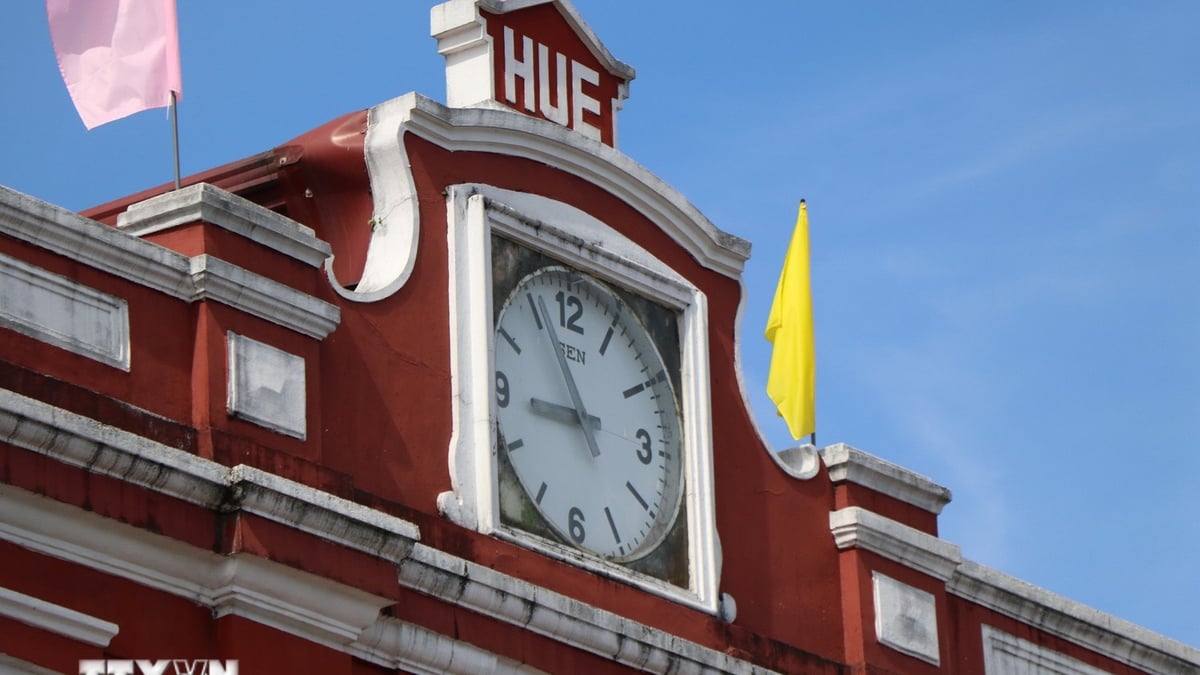
![[Photo] President Luong Cuong receives Lao Vice President Pany Yathotou](https://vphoto.vietnam.vn/thumb/1200x675/vietnam/resource/IMAGE/2025/5/25/958c0c66375f48269e277c8e1e7f1545)
![[Photo] The coffin of former President Tran Duc Luong arrives in Quang Ngai](https://vphoto.vietnam.vn/thumb/1200x675/vietnam/resource/IMAGE/2025/5/25/1f1aca0d92ab47deae07934e749b35e6)
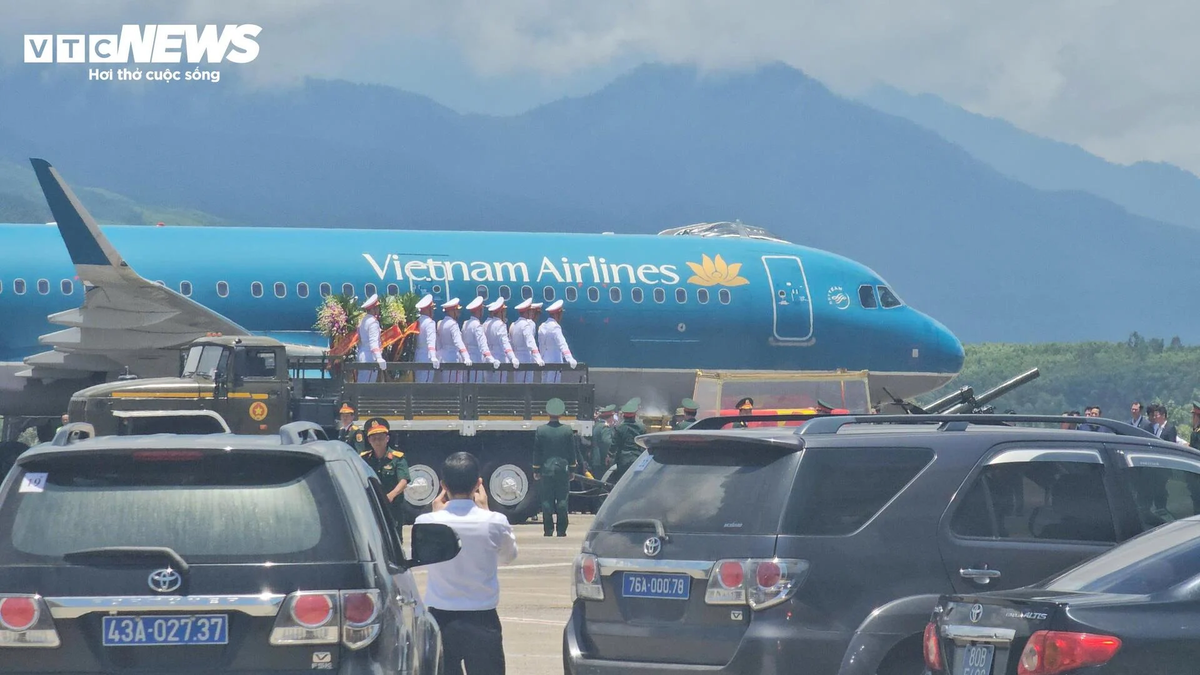

![[Photo] Festival of accompanying young workers in 2025](https://vphoto.vietnam.vn/thumb/1200x675/vietnam/resource/IMAGE/2025/5/25/7bae0f5204ca48ae833ab14d7290dbc3)
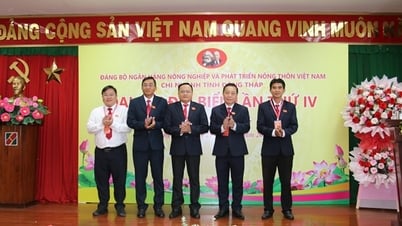

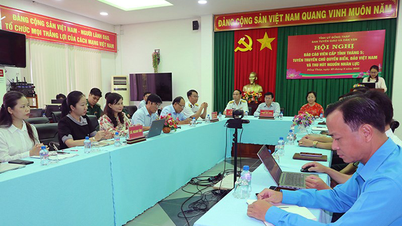


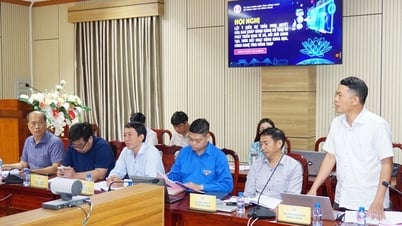







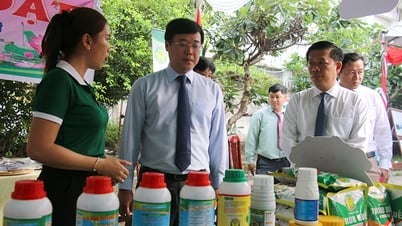
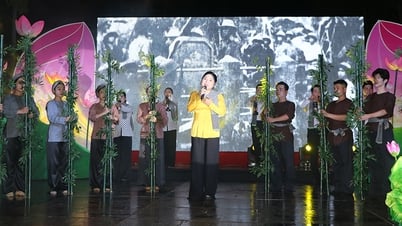


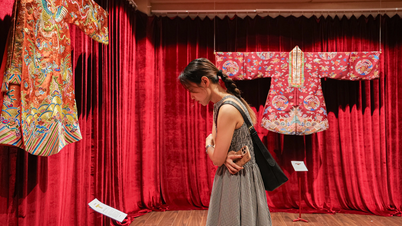









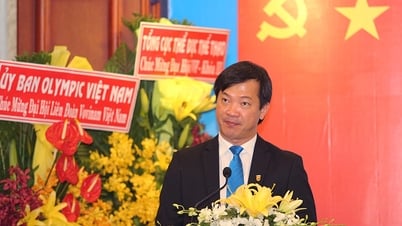

















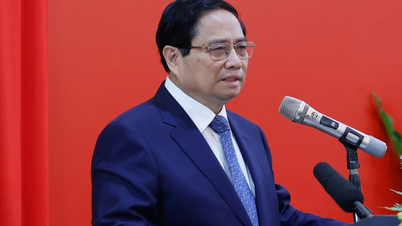

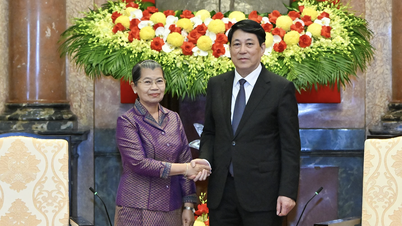


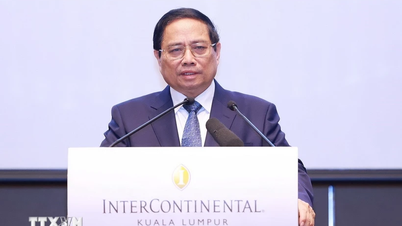









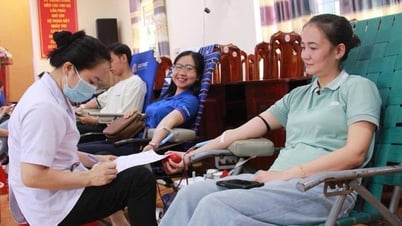




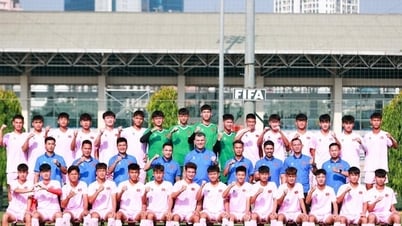







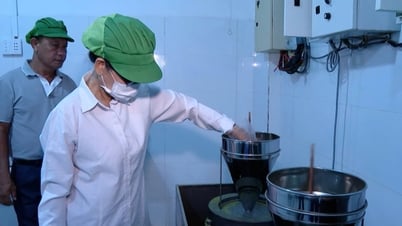




Comment (0)